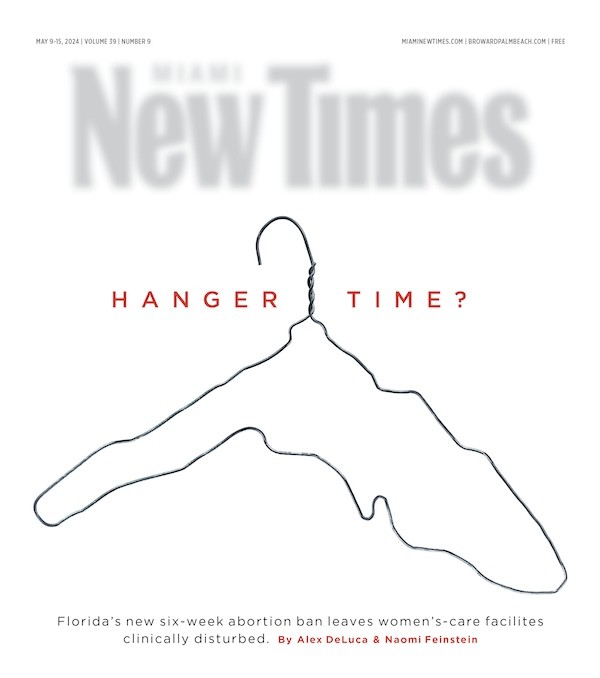The following is excerpted from a multipart series by former Sun-Sentinel Staff Writer Bill Hirschman, who is now editor, chief critic, and reporter for Florida Theater Onstage. To read the entire series, visit floridatheateronstage.com.
The single most profound problem facing South Florida theater is that almost no one knows it's here. It's not that people are choosing to do something else with their entertainment dollars or philanthropic resources. Theater simply isn't on the radar screen for anyone but a sliver of the population.
Other than Broadway Across America tours, there are few billboards, few feature stories on local television, no daily theater listings in the newspapers, meager mention in tourism magazines, and no presence on those hotel racks of lobby cards hawking attractions.
Theater is invisible not just to potential audience members. It's absent from the minds of the government bureaucrats, the honchos who direct corporate philanthropy, the families seeking a cause to donate to, and education policymakers.
South Florida is a destination for leisure, not culture, other than Art Basel. No one comes to Florida to see theater as they do when visiting Chicago. With the demise of the Coconut Grove Playhouse and Florida Stage, only the most plugged-in professionals around the country are aware of the opportunities and the quality. The national brushoff even affects the tours: The musical Next to Normal, which later became a success for Actors Playhouse in Coral Gables, never toured here. The national tour of The Book of Mormon won't come to South Florida next season. It will play Rochester and Des Moines but not Florida.
Yes, 100,000 theater tickets are sold every year across the region. Florida's high schools and colleges are filled with 10,000 students volunteering for in-school classes, after-school drama programs, plus summer camps. But question ten people on the Miracle Mile and find two who know theater is being performed two blocks away.
As a direct result of invisibility, audiences are dwindling, grants are shrinking, donations are drying up, and out-of-town theater professionals are not opting to work here.
What artists, critics, and Carbonell Award voters call South Florida theater is marginally smaller than Delaware. But to the audiences, patrons, and business leaders, a theater market is about ten to 15 square miles.
One of the reasons for the demise of Florida Stage was that part of its audience wouldn't drive nine miles from their "neighborhood" playhouse in Manalapan up to the Kravis Center in West Palm Beach. That concern will be retested this fall, when the Fort Lauderdale-based Women's Theatre Project moves to the Willow Theatre in Sugar Sand Park in Boca Raton.
Some theaters do promote a competitor's show in their email blasts. Some allow companies to leave brochures about upcoming productions in their lobbies. Yet while nearly every theater chief heartily endorses the idea of cooperation, each balks at specific suggestions.
One side effect is that while these people led others in creating their individual theaters, no single person nor group of people has stepped forward to provide the leadership that could be a catalyst for change communitywide, other than the South Florida Theatre League.
But money, not artistic failure, is what kills off a South Florida theater company. The loss of Coconut Grove Playhouse, Caldwell Theatre, and Florida Stage might be assumed to have chilled donations, but it's the hundreds of small and medium-sized donors who have cut back the checks that are unheralded but crucial to survival. The other shortfall is among the new "second generation" of corporate CEOs who don't think about theater as a place to invest.
Ultimately, not a single theater's chief we interviewed felt financially comfortable. One company still in operation was at least $475,000 in debt last fall. Yet another company's show lost $20,000 this summer.
Promethean Theatre cofounder Deborah Sherman said last spring that she closed the Davie company because of fundraising fatigue.
Few people get into the arts to make money, and fewer still know how to do it. In South Florida, nearly every theater resulted from artists who created the structure of a company as a necessary evil to provide a platform for their art. If a company is lucky, like Dramaworks or GableStage, their administrators have some business experience. If they last long enough, they accumulate some know-how like Mosaic Theatre in Plantation. But survival, let alone growth, requires expertise that most artistic directors lack.
In any business, there is one crucial element in ensuring a long-term future — someone needs to be thinking about it. Few theater companies do that. Other than at Maltz and Dramaworks, strategic planning is limited at most theaters to spit-balling over a couple of pitchers after a show.
Another oft-ignored issue is how a company would survive if its charismatic founder retired or got hit by a car. With the exception of artistic directors Michael Hall at the Caldwell Theatre in Boca Raton and Rafael de Acha at New Theatre in Coral Gables, no one had or has succession plans that have been made public.
A decade and a half ago, artistic directors founded companies by identifying the work they wanted to do and hoped that "if you build it, they would come." But now several are seeking a balance between staying true to their vision and the survival game of guessing an audience's druthers.
Several artistic directors said patrons complain when they stray outside expectations. Actors Playhouse's superlative folk opera Floyd Collins drove out its conventional audiences even before intermission in 2003. Some people contend the Caldwell imploded because it changed its fare too abruptly, even though it was doing some of its best work ever. GableStage took a huge chance with the unsettling Blasted in 2010, but it took a financial beating with Tarrell Alvin McCraney's imaginative The Brothers Size.
As a result, several types of show simply aren't seen anymore because they don't fall in someone's mission statement. Who is doing Cyrano de Bergerac, Major Barbara, Molière, Odets, Genet, or the pre-Neil Simon light comedies?
And there simply is not enough performing space in the three counties that fits all the criteria. It's not that there aren't empty stages all over the region, especially considering the crop of new government-sponsored halls from Cutler Ridge to Miramar. But many are too large and too expensive for even the more established companies. What is desperately needed are 99-seat and 149-seat houses.
Cost matters too. Lynn University has a gorgeous 750-seat theater, but its rental is $1,635 to $2,045 a night. The Adrienne Arsht Center for the Performing Arts in Miami has generously hosted Zoetic Stage, City Theatre, Alliance Theatre Lab, and Mad Cat, but the companies have to use the Arsht's union-scale stagehands and incur other expenses. The receiver currently overseeing the former Caldwell Theatre space charged Entr'acte Theatrix $5,000 a week rent to use its 333-seat theater in July.
Anyone who sees even a handful of shows knows that South Florida is blessed with skilled actors, directors, stage managers, designers, stage crews, and support staff committed to making their artistic stand here. For the moment. Like every other resource, it's imperiled.
Every artistic director and producer interviewed said they preferred hiring local talent where possible. But the real third-rail issue is just how good local talent is in the first place. Some people interviewed said South Florida partisans have a parochial blindness that, frankly, artists here are better than they are. They contend that an A-level director here is a B-level director in the major theater hubs.
The list of challenges may be longer than The Iceman Cometh and more daunting than King Lear. But the theater community can evolve, adapt, and grow where it wants to go.










